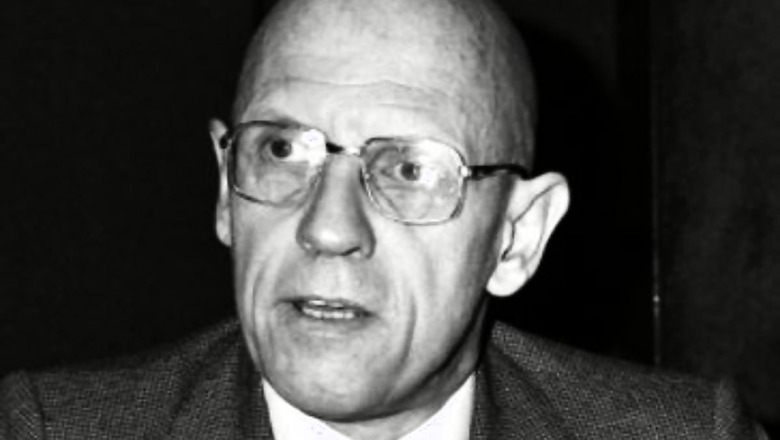
views
Michel Foucault, French philosopher, historian and one of the most influential and controversial scholars of the post World War II era was born on October 15, 1926 in Poitiers, France. He’s often associated with post-structuralist and post-modernist movements.
Foucault’s theories were primarily based on the relationship between power and relationship and how they are used to influence society at large through social institutions. His works have greatly influenced scholars, academics, especially those working in sociology, criminology, anthropology, feminism and critical thinking.
After graduating in 1952, Foucault served as a cultural diplomat abroad for several years. He returned to France and published his first major book, The History of Madness in 1961. While working at the University of Clemont-Ferrand, he published his second book The Birth of the Clinic (1963) and The Order of Things (1966). These three works exemplified a historiographical technique which Foucault called his version of ‘archaeology’.
Between 1966 to 1968, Foucault lectured at the University of Tunis before returning to France, where he was appointed as head of the department of philosophy. He went to publish The Archaeology of Knowledge (1969). In 1970, Foucault was admitted to the prestigious College de France, the only one job he retained until his death. He later published Discipline and Punish (1975) and the controversial The History of Sexuality (1976), it was this work in which he developed archaeological and genealogical methods which emphasized the role that power plays in society.
Here’s a look at some of his lesser known facts:
1. Foucault’s appointment at the prestigious College de France, the university created a unique post for him. He took charge as ‘Professor of history of systems of thought,’ this usual title was created because of the distinctive magnitude of Foucault’s work which had multiple disciplines of history, philosophy and politics.
2. He’s known to have coined the term ‘power-knowledge’ as Foucault vigorously argued that knowledge and power are bound intimately. According to him, every exercise of power depends on a scaffold of knowledge that supports it.
3. The first volume of his work, The History of Sexuality, is considered as leading light on gay and lesbian studies and queer theories. Thanks to his works, terms such as discourse, genealogy and power-knowledge have been used in almost all contemporary social and cultural research studies.
4. According to a London School of Economics study in 2016, Foucault’s works Discipline and Punishment and The History of Sexuality were among the most cited books in social sciences of all time, with over 100,000 citations.
5. Foucault died from complications of HIV-AIDS, he was one of the first public figures in France to die from the complications of the disease, aged 57.
Read all the Latest News and Breaking News here




















Comments
0 comment